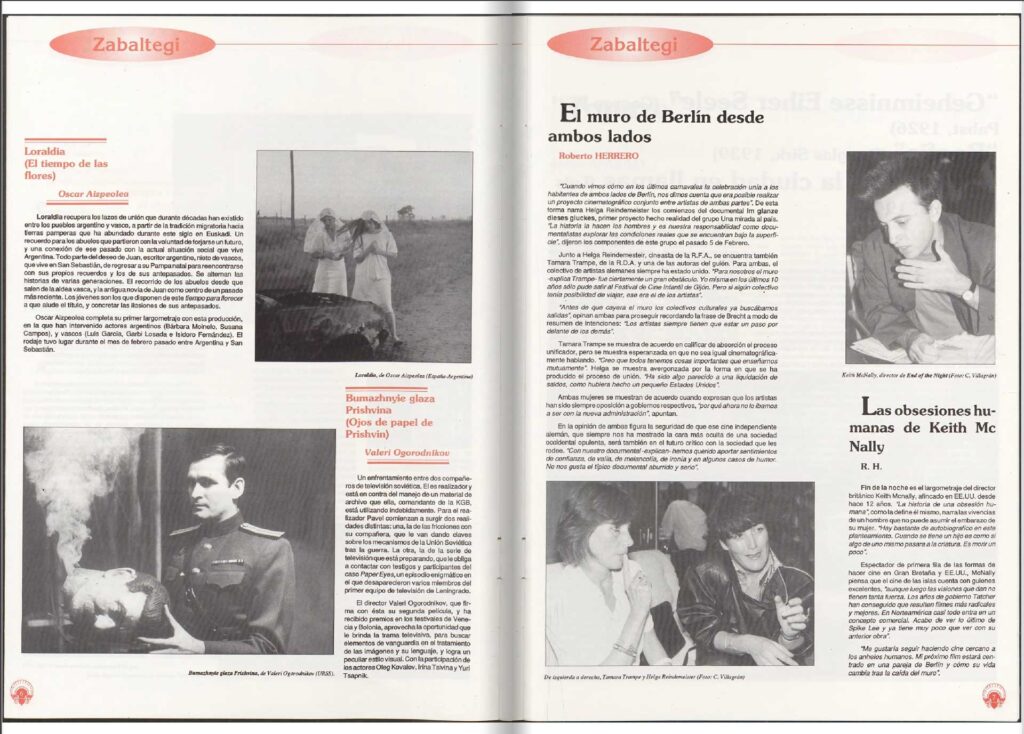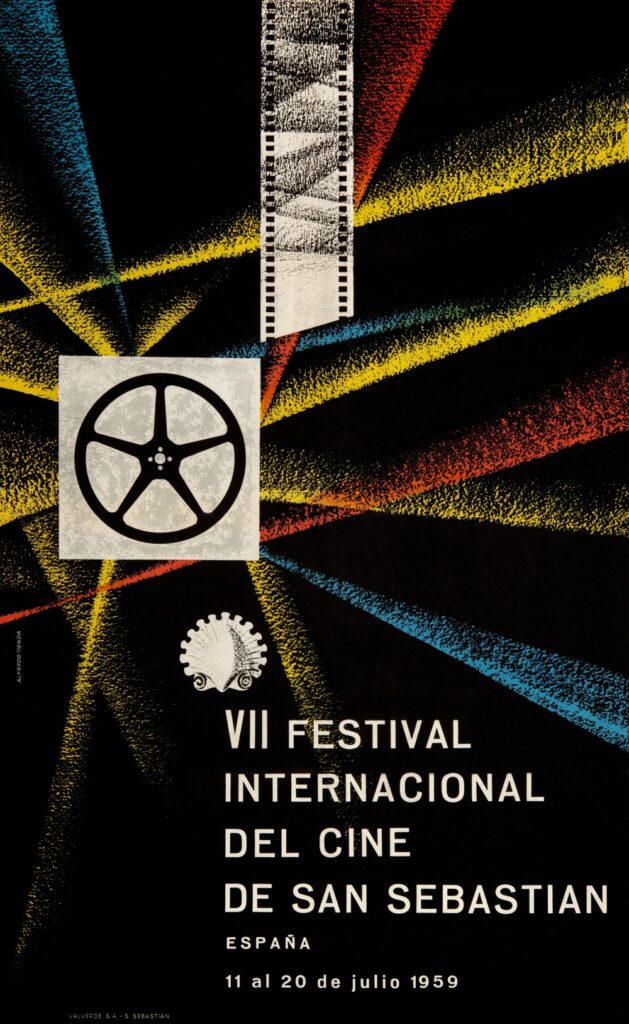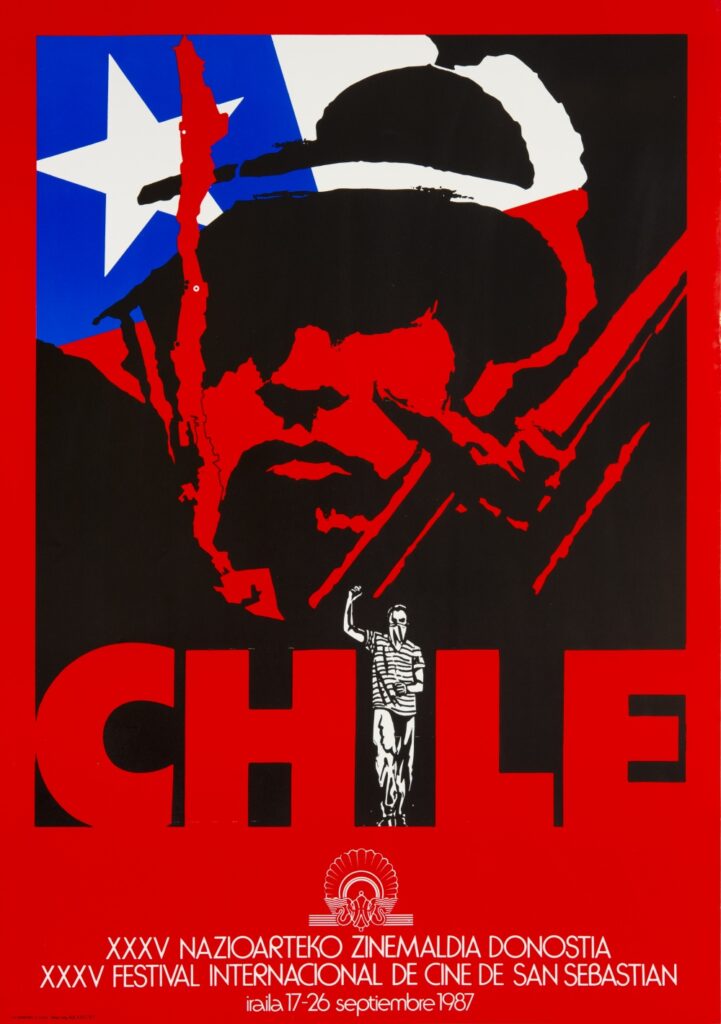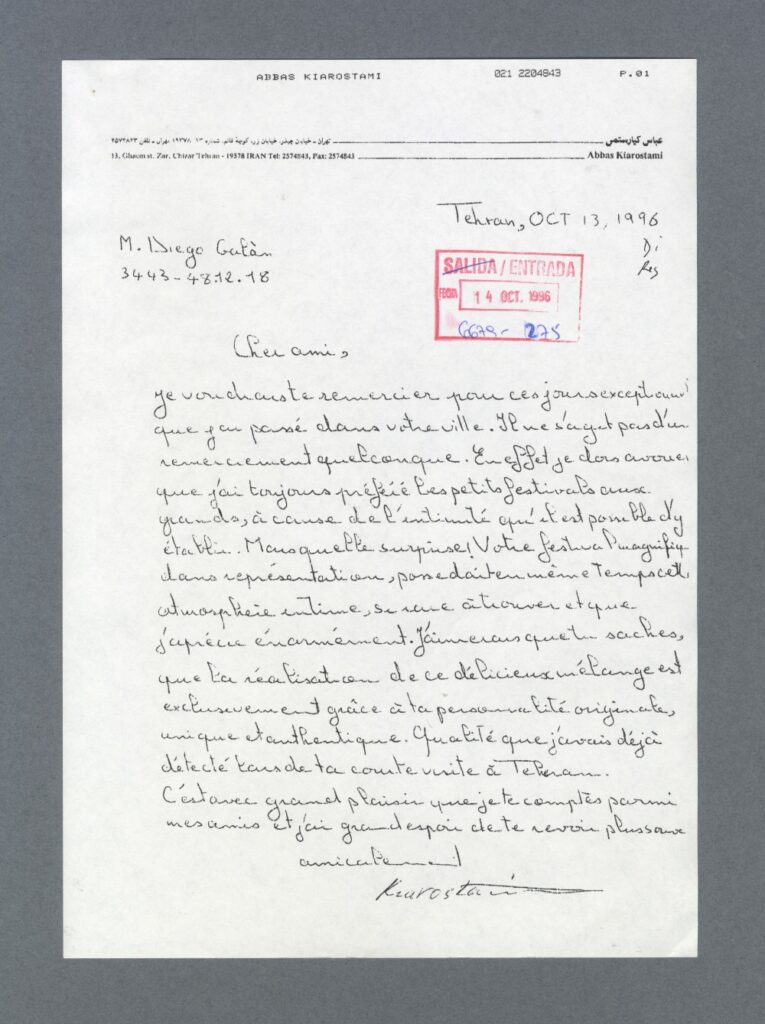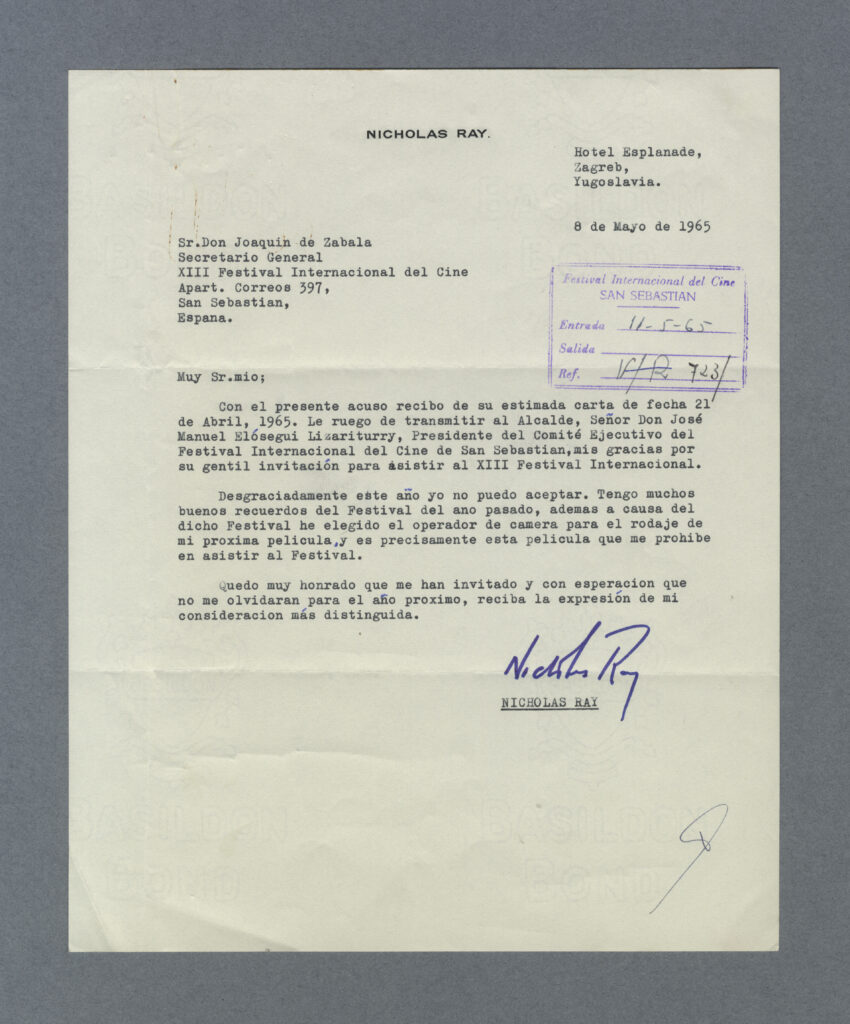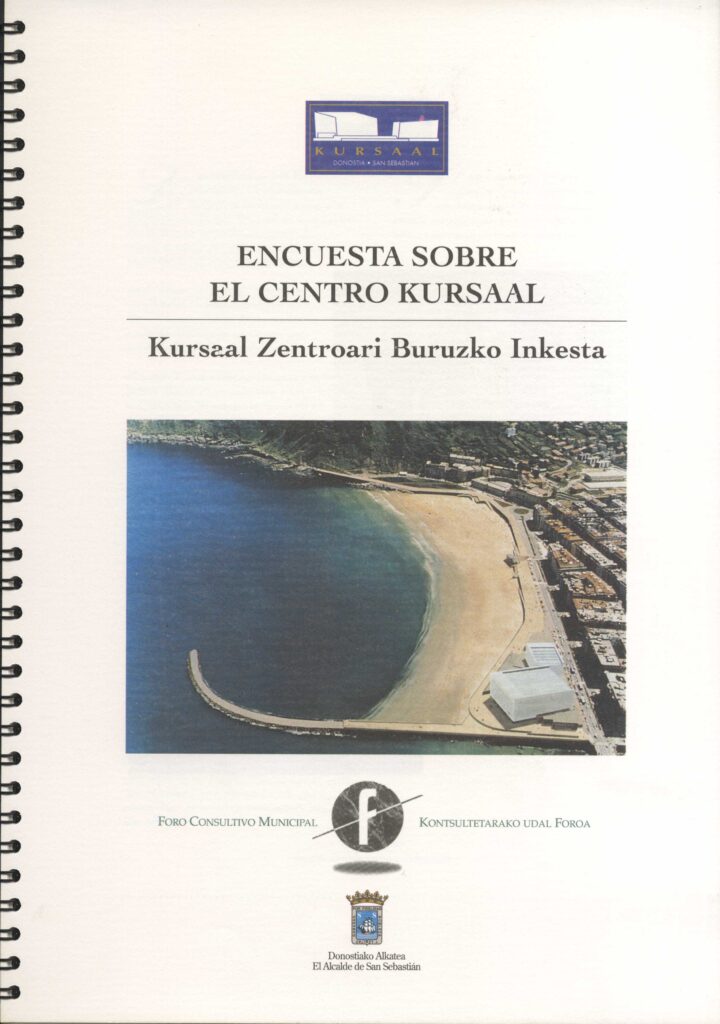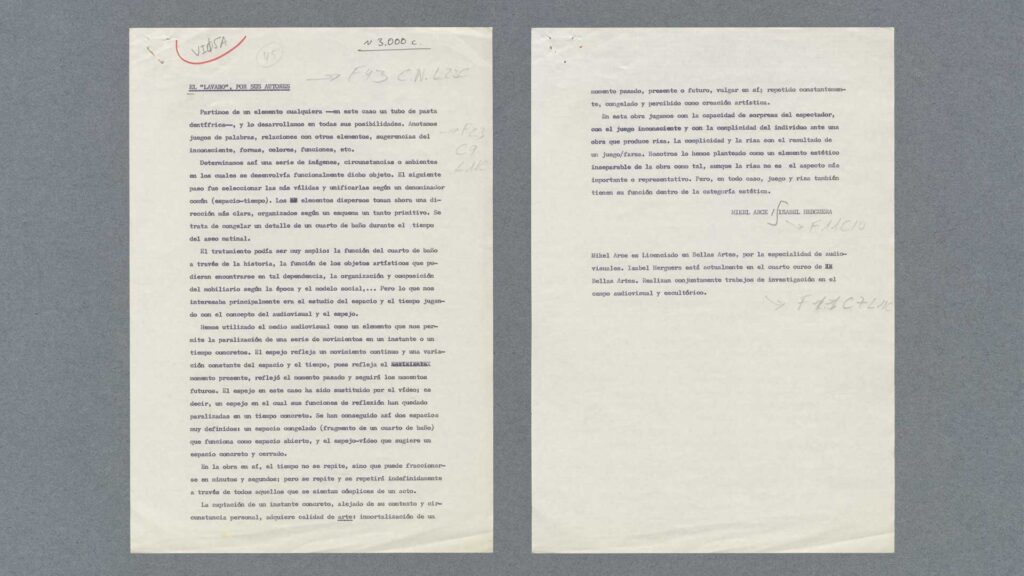Digital collections
Digital collections
Regulations of the II Cartago International Film Festival
July 2024
In 1966, just a few months after the First Tricontinental Conference in Havana was held, the Carthage Film Festival was founded in Tunis, an initiative conceived by filmmaker Tahar Cheriaa under the auspices of the Secretariat of State for Cultural Affairs and Information of the Tunisian Republic, in what is to date the oldest active film event in Africa.
In that first edition, the so-called ‘father of African cinema’ Ousmane Sembène won the Golden Tanit with his feature film La Noire de… (1966). After his visit to the event, he became involved with the politician Alimata Salambere in the creation of the other major festival on the African continent, the FESPACO (Festival Panafricain du Cinéma et de la Télévision de Ouagadougou), inaugurated in Burkina Faso three years later.
In a global climate of student and social movements that redrew the map of international festivals, of newly constituted republics after the independence struggles (1957 in the case of Tunisia) and of deliberate distancing from the colonial powers, these film festivals emerged as spaces for reclaiming their own cinematographic identity, far from the hegemonic influences of Western cinema. It is no coincidence that in 1970, within the framework of the Carthage Film Festival, the Pan-African Federation of Filmmakers (FEPACI) was created, which would develop a basis for South-South film cooperation with African, Latin American and Asian countries.
For its second edition in 1968 (the Tunisian festival was originally held every two years, alternating with the Carthage Theatre Festival), Tahar Cheriaa sent an invitation to Miguel de Echarri, Director of the San Sebastian Film Festival, and enclosed with his letter the rules and regulations of the event. This document, the only trace of correspondence between the two festivals, reveals the pillars of the festival’s objectives: to be a meeting point for young filmmakers and critics from the African continent, paying special attention to Arab and sub-Saharan cinema through film screenings, meetings and debates reflecting on the place of African cinema in the world. Among its other objectives was internationalisation, with the creation of bridges of dialogue between the global north and south in terms of cinematographic improvement. Its editorial line was characterised by supporting committed and militant cinemas and by showing in Carthage films that had suffered censorship in their countries of origin.
Renowned filmmakers such as Sara Maldoror, Youssef Chahine, Med Hondo, Safi Faye and Michel Khleifi have all passed through the history of the Carthage Film Festival. Khleifi was awarded with the Golden Tanit in 1988, after winning the Golden Shell at the San Sebastian Film Festival the year before for his film Urs al-jalil (Wedding in Galilee, 1987).
Full description sheet
Document
Regulations of the II Cartago International Film Festival
Identity statement area
ID: 41710
Catalogue number: AOAO | 1968-1969.1009
Location: M01.B05.C01
Classification scheme: 4.4.3. International festivals
Title: Regulations of the II Cartago International Film Festival
Date of creation: 1968
Level of description: Composite documentary unit
Extent and medium of the unit of description: 5 documents
Content and structure area
Places: Tunisia
Conditions of access and use area
Conditions governing access: Conditions governing access
Conditions governing reproduction: Conditions governing reproduction
Control area
Preservation: Anna Ferrer, Andrea Sánchez
Cataloguing: Edurne Arocena (Ereiten)
Regulations of the II Cartago International Film Festival (1968) San Sebastian Festival Archive. [+]
Other documents of the month
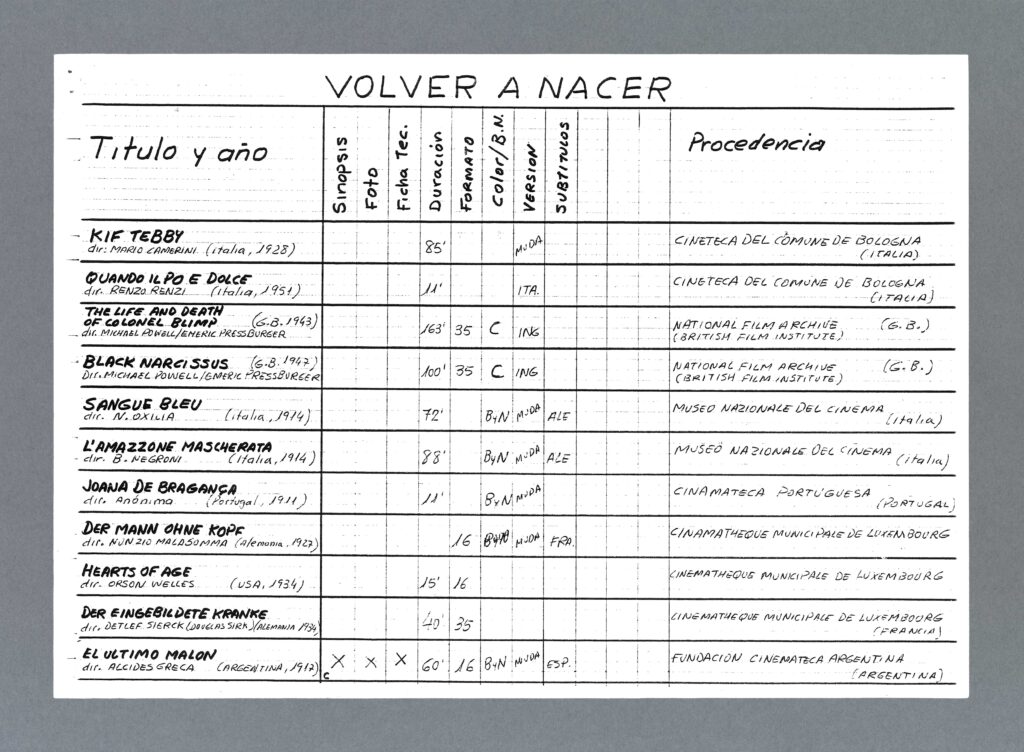
[+]
Internal programming document relating to the retrospectives “Volver a nacer” and “Harry d’Abbadie d’Arrast” (1990) San Sebastian Festival Archive. [+]
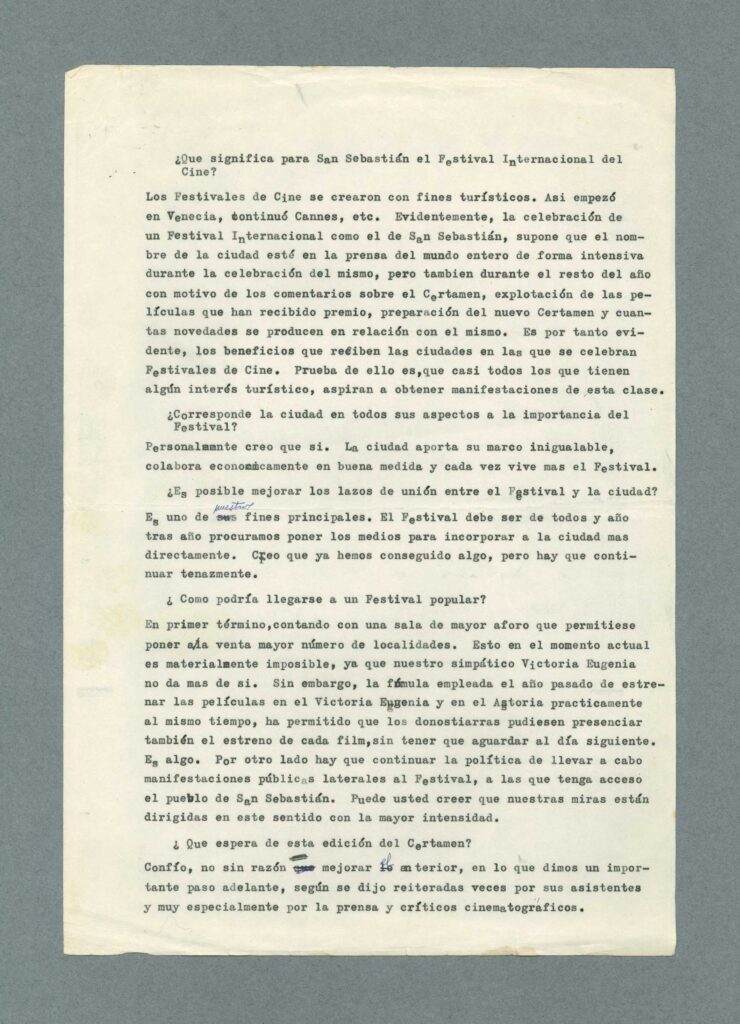
[+]
Interview with the competition organisers prior to the 16th edition in 1968 (1968) San Sebastian Festival Archive. [+]
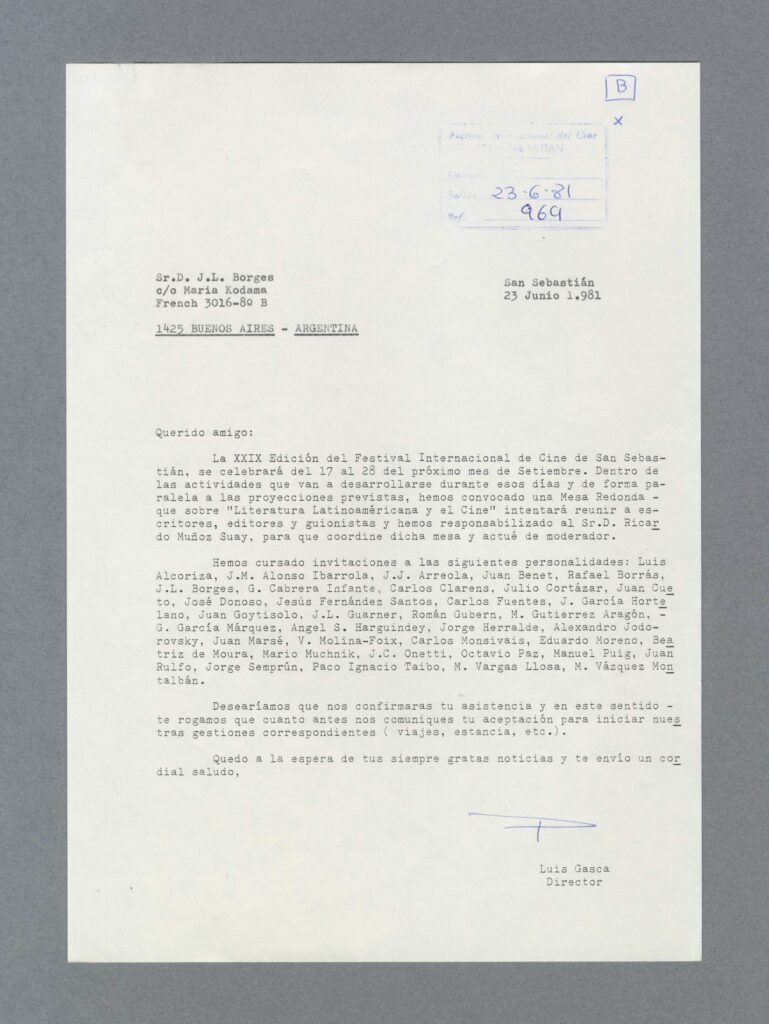
[+]
Letter from Luis Gasca to Jorge Luis Borges on the occasion of his participation in the round table discussion ‘Latin American Literature and Cinema’ (1981) San Sebastian Festival Archive. [+]
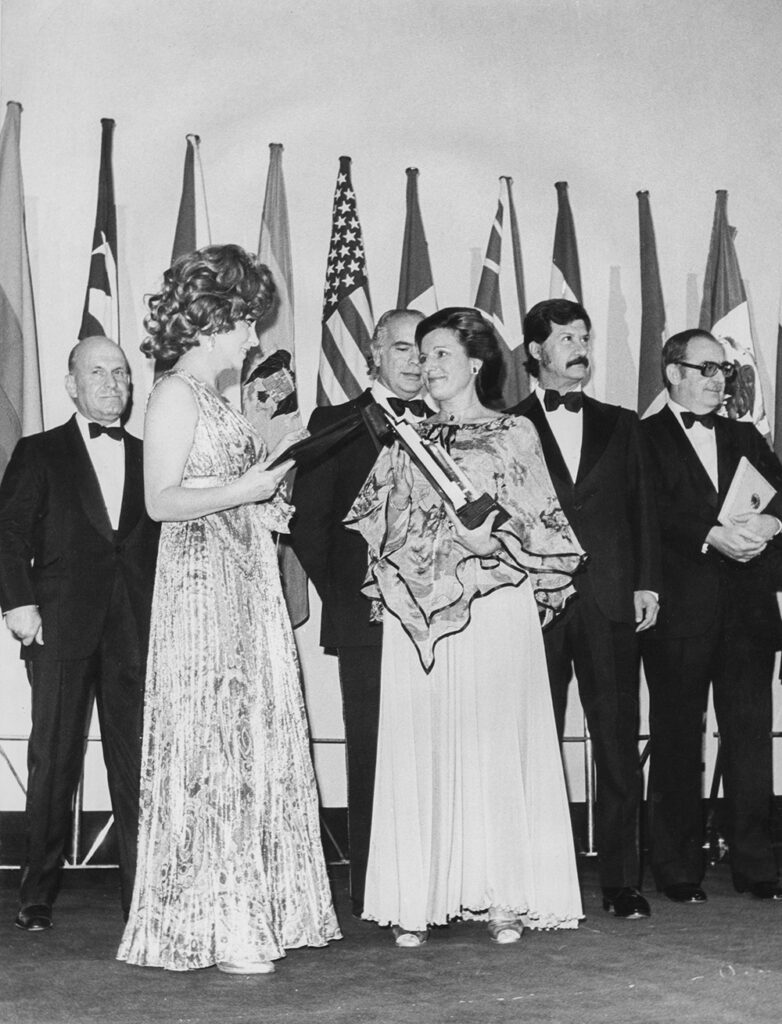
[+]
Actress Gina Lollobrigida presenting the San Sebastian Award for Best Female Performance to the distributor Procinor for “A Woman Under the Influence” (1975) San Sebastian Festival Archive. [+]

[+]
The actress Josefa Flores González, better known as Marisol or Pepa Flores, at the Hotel María Cristina (1960) San Sebastian Festival Archive. [+]
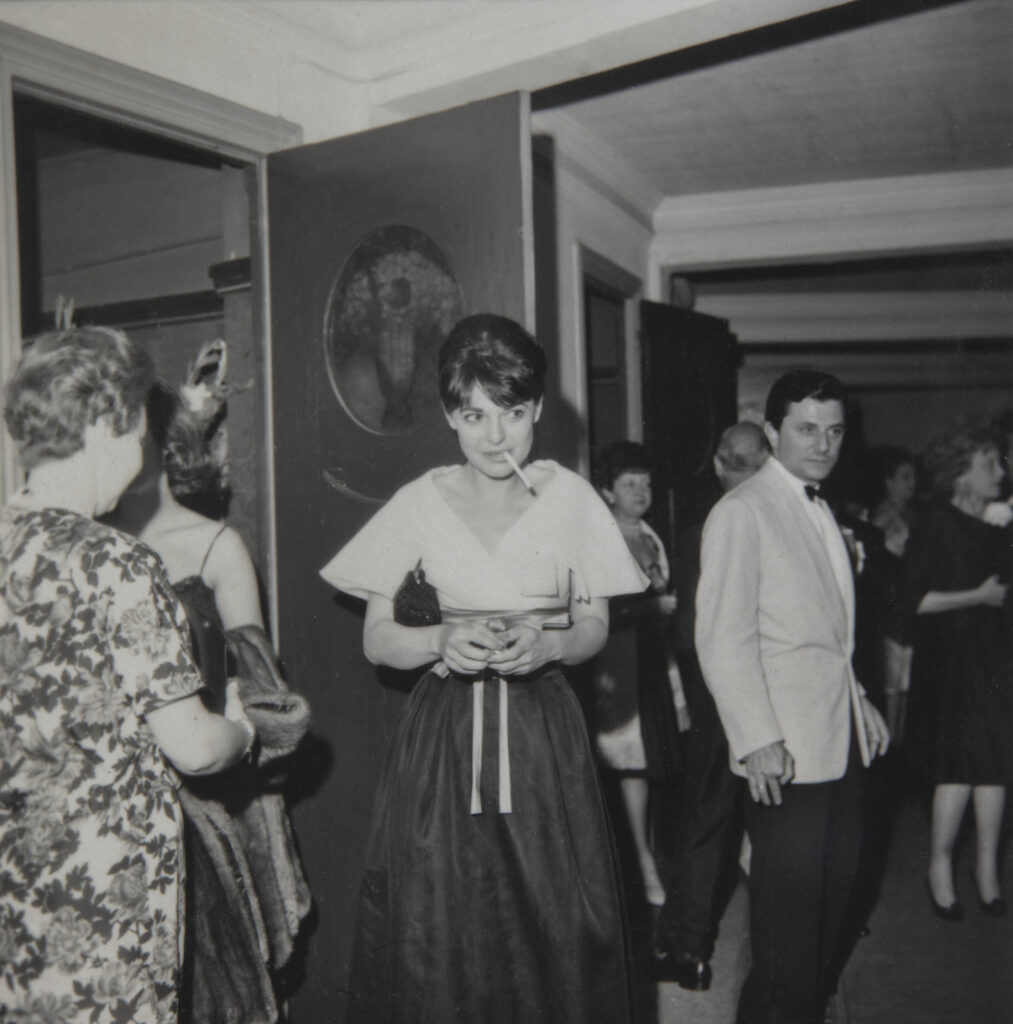
[+]
Anne Bancroft at the Victoria Eugenia Theatre’s boxes entrance during the presentation of the film “The Miracle Worker” (Arthur Penn) (1962) San Sebastian Festival Archive. [+]
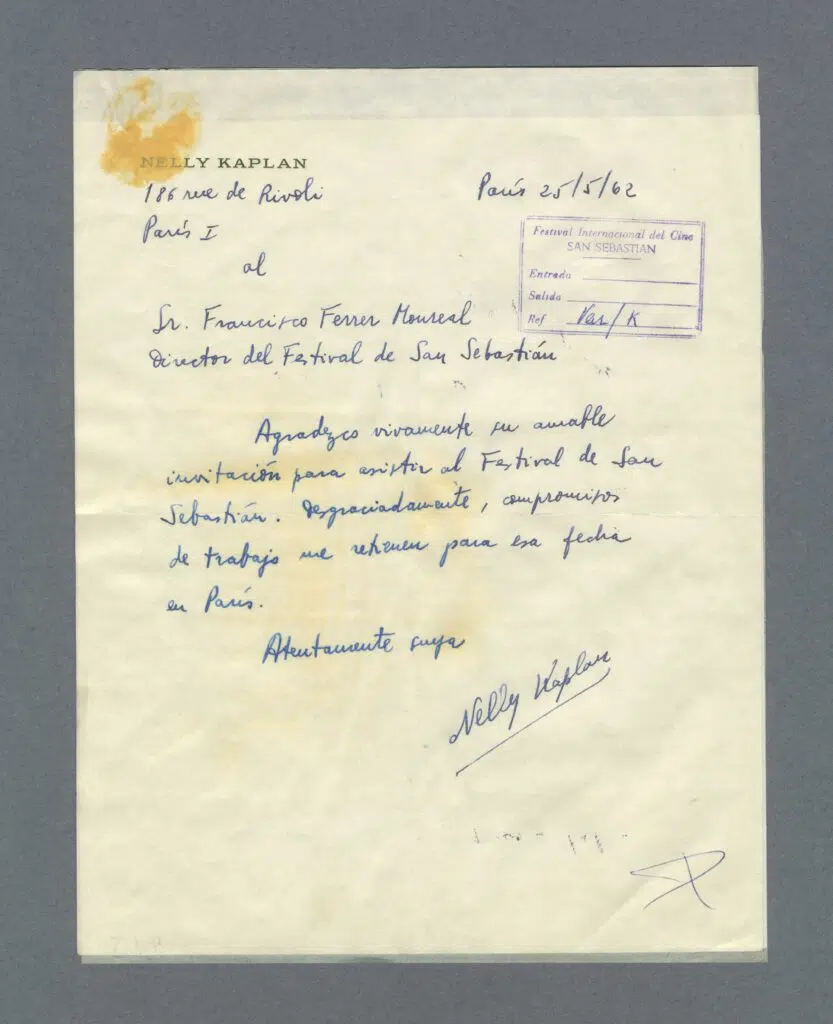
[+]
Letter from Nelly Kaplan to Francisco Ferrer on the invitation to the festival (1962) San Sebastian Festival Archive. [+]
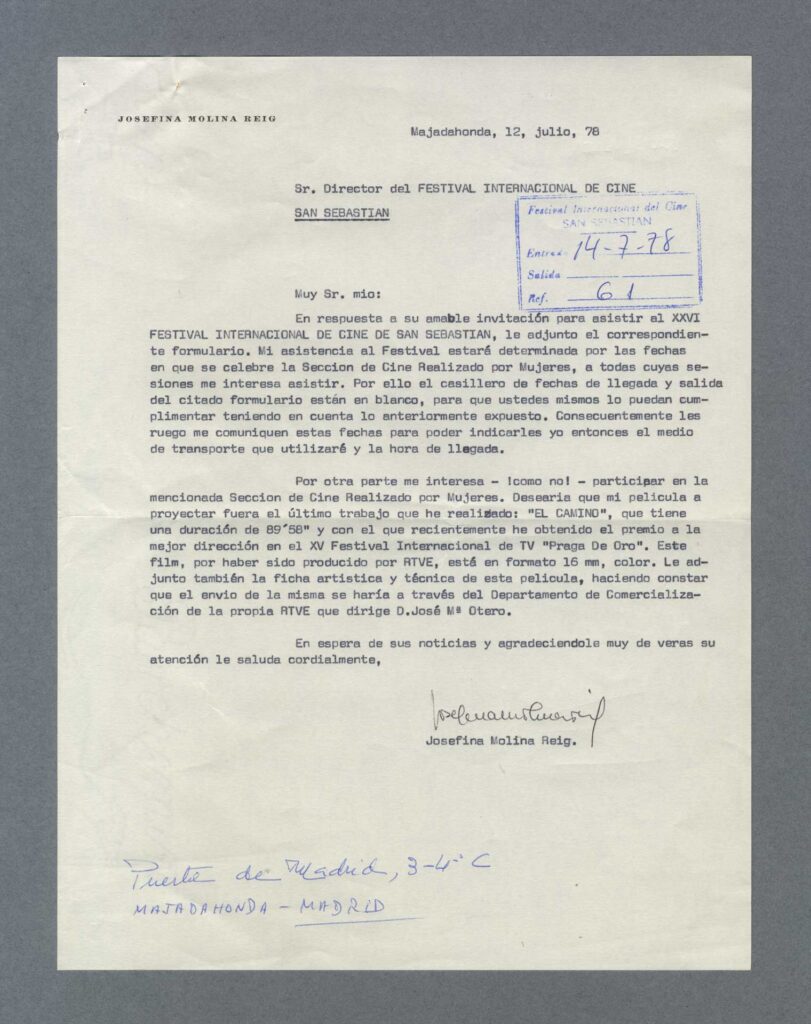
[+]
Letter from Josefina Molina to the Festival organisers (1978) San Sebastian Festival Archive [+]
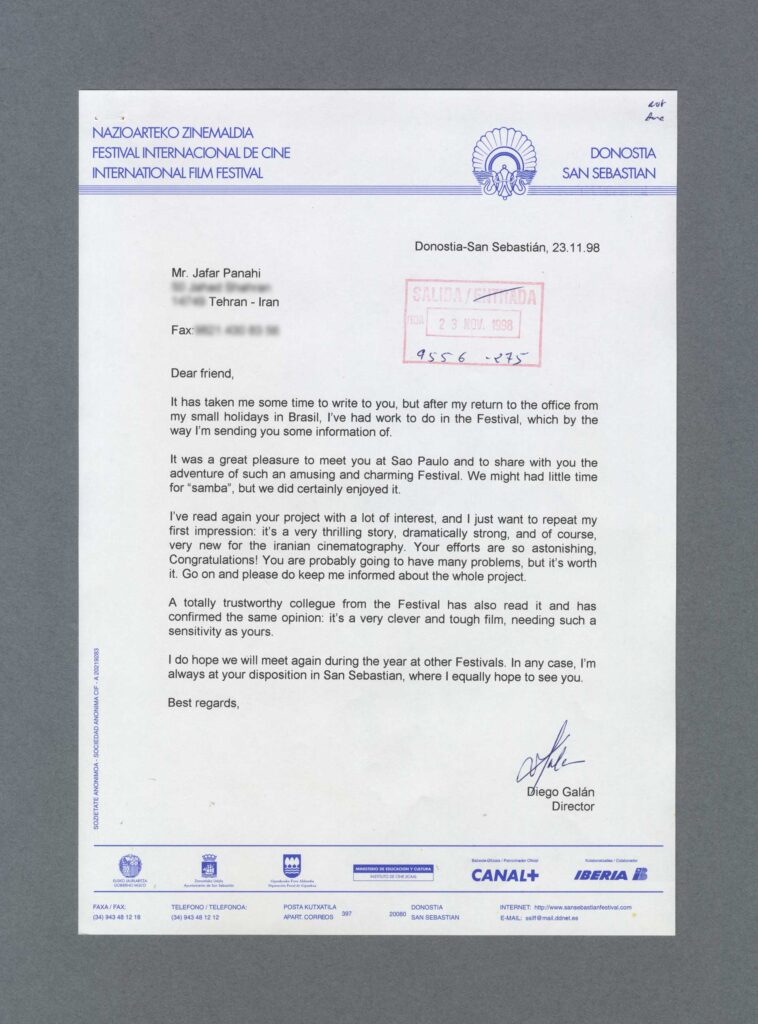
[+]
Letter from Diego Galán to film director Jafar Panahi (1998) San Sebastian Festival Archive. [+]
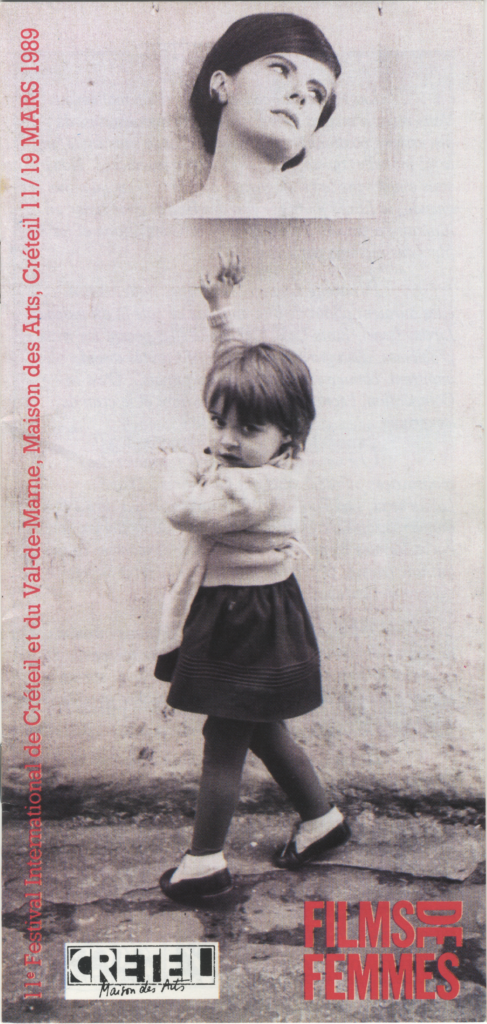
[+]
Program for the 11th edition of the Festival International de Films de Femmes de Créteil et du Val de Marne (1989) San Sebastian Festival Archive. [+]
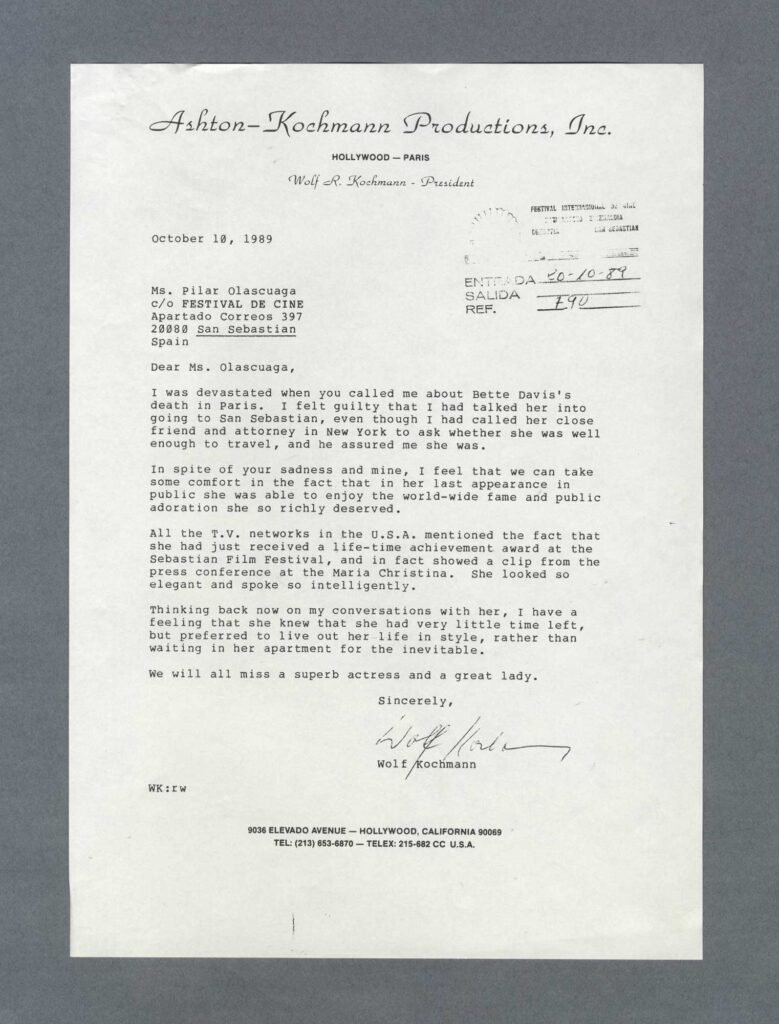
[+]
Letter from Wolf Kochmann to Pilar Olascoaga on the death of Bette Davis (1989) San Sebastian Festival Archive. [+]
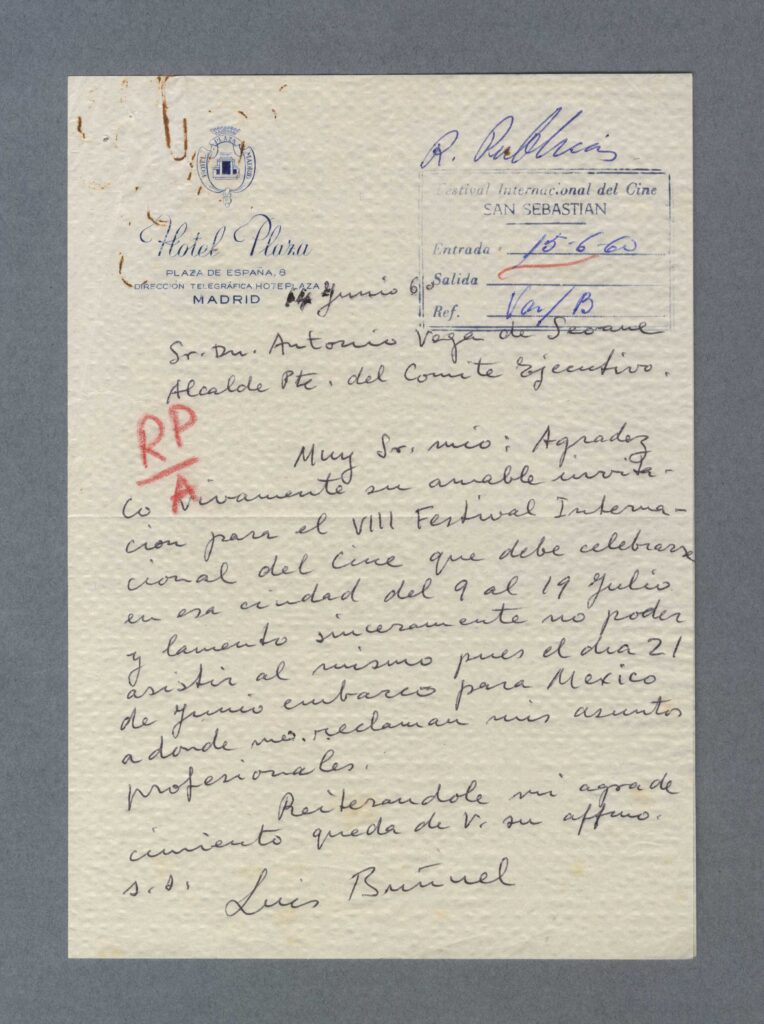
[+]
Letter from Luis Buñuel to the Mayor of San Sebastián Antonio Vega de Seoane (1960) San Sebastian Festival Archive. [+]
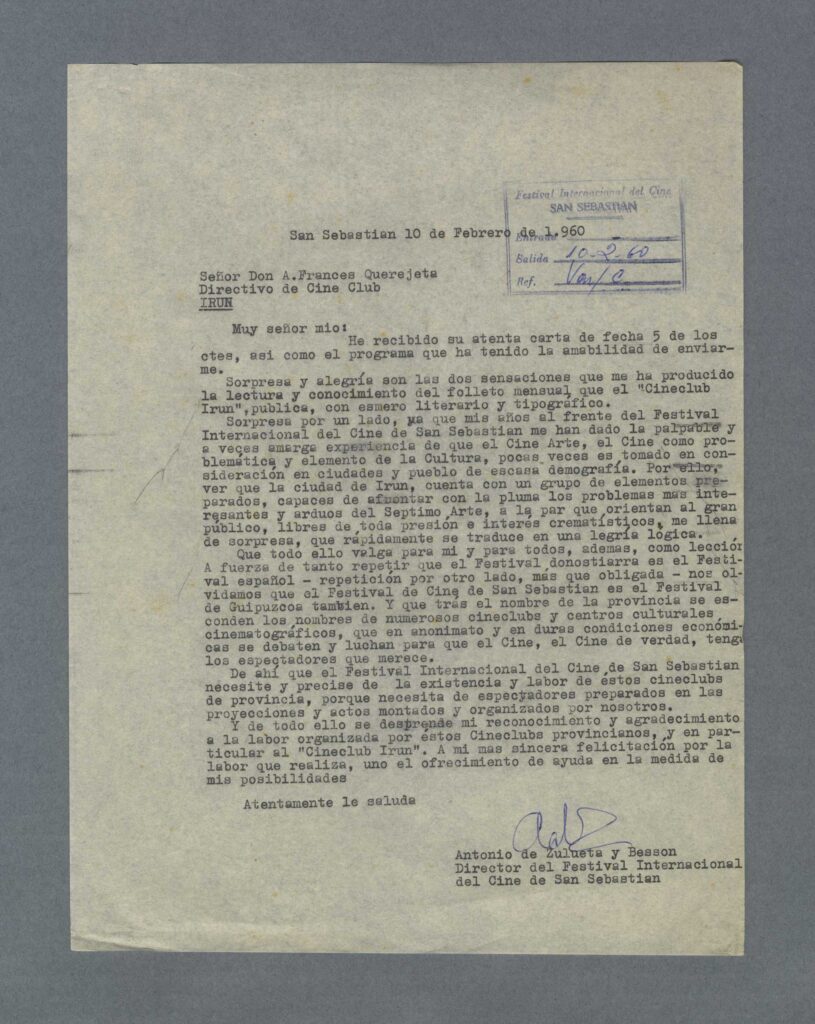
[+]
Letter sent by Antonio de Zulueta y Besson to the Cineclub Irún accepting to collaborate with them (1960) San Sebastian Festival Archive. [+]
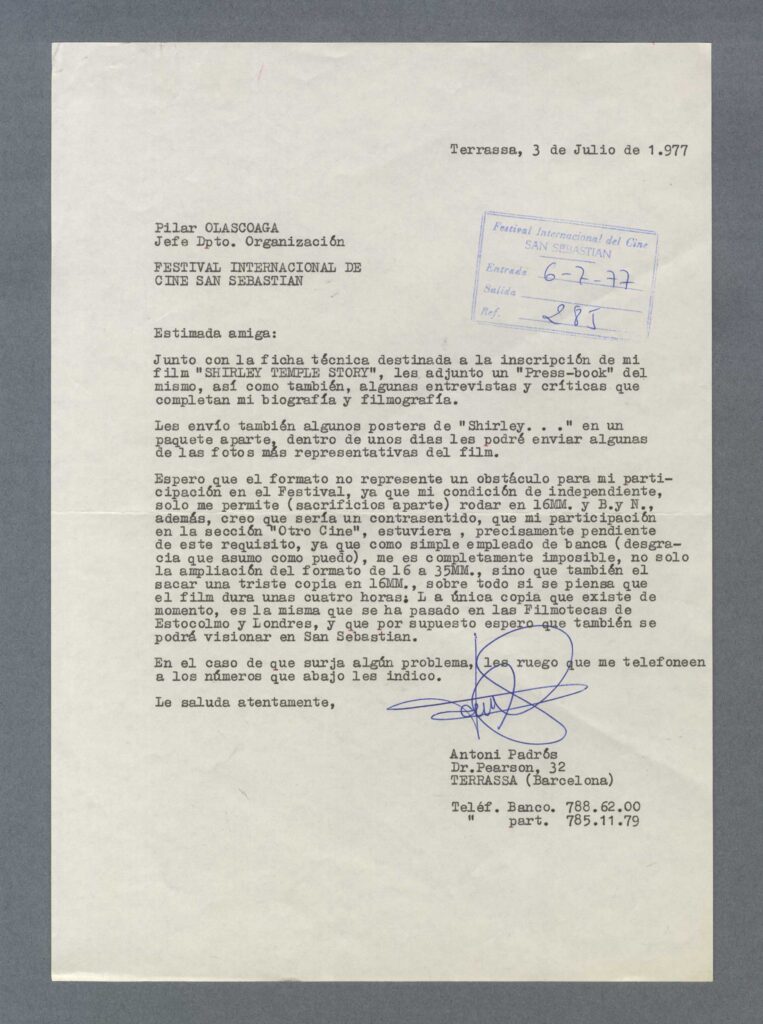
[+]
Letter from underground filmmaker Antoni Padrós to Pilar Olascoaga (1977) San Sebastian Festival Archive. [+]
